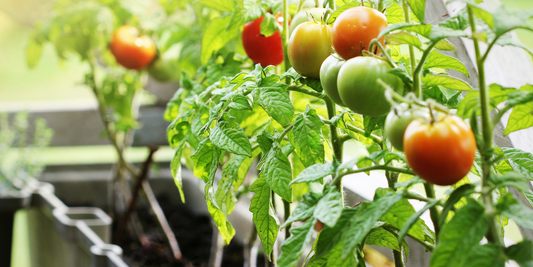In the quest for a flourishing garden, many of us resort to pesticides without fully considering the long-term consequences. While pesticides may provide a quick fix for pest problems, they can also harm beneficial insects, disrupt the ecosystem, and pose health risks to humans and pets. Fortunately, there are natural alternatives that not only effectively manage pests but also promote a healthy and sustainable garden ecosystem. Let's explore five eco-friendly methods to replace pesticides and nurture your garden's vitality:
-
Covering with Mesh: Protecting your plants with mesh or netting is an excellent way to prevent pests from accessing them. Mesh barriers act as physical shields, blocking insects like aphids, caterpillars, and beetles from laying eggs or feeding on your crops. Invest in fine mesh covers tailored to your specific plants to ensure proper airflow while keeping pests at bay.
-
Plant More Garlic and Chives: Introducing aromatic herbs like garlic and chives into your garden not only adds flavor to your culinary creations but also deters pests with their pungent scent. These natural repellents create an unfavorable environment for pests, making your garden less inviting to potential invaders. Plant them strategically around susceptible crops or as border plants to provide a protective barrier against pests.
-
Use Trap Crops: Deploying trap crops is a strategic method to lure pests away from your prized plants. Choose sacrificial crops that pests find irresistible but are less valuable to you. By diverting pests to these decoy plants, you can safeguard your main crops from significant damage. Examples of effective trap crops include sunflowers for aphids and nasturtiums for whiteflies.
-
Plant More Dill and Cilantro: Incorporating dill and cilantro into your garden not only enhances its culinary appeal but also attracts beneficial insects such as ladybugs, lacewings, and hoverflies. These beneficial insects are natural predators of common garden pests like aphids, mites, and caterpillars. By providing habitat and food sources for these allies, you can establish a balanced ecosystem where pest populations are kept in check naturally.
-
Harvest and Prune Daily: Regularly harvesting ripe fruits and vegetables and pruning damaged or diseased plant parts is essential for maintaining a healthy garden ecosystem. Overripe or decaying produce can attract pests, so promptly removing them reduces the likelihood of infestations. Additionally, pruning encourages proper airflow and sunlight penetration, reducing the risk of fungal diseases and creating an environment less favorable to pests.
In conclusion, transitioning away from pesticides towards natural alternatives not only protects the health of your garden but also supports a thriving ecosystem teeming with beneficial insects and vibrant plant life. By embracing methods such as covering with mesh, planting garlic and chives, using trap crops, incorporating dill and cilantro, and practicing daily harvesting and pruning, you can cultivate a garden that thrives in harmony with nature. Let's nurture our gardens sustainably and reap the rewards of a pesticide-free paradise.


